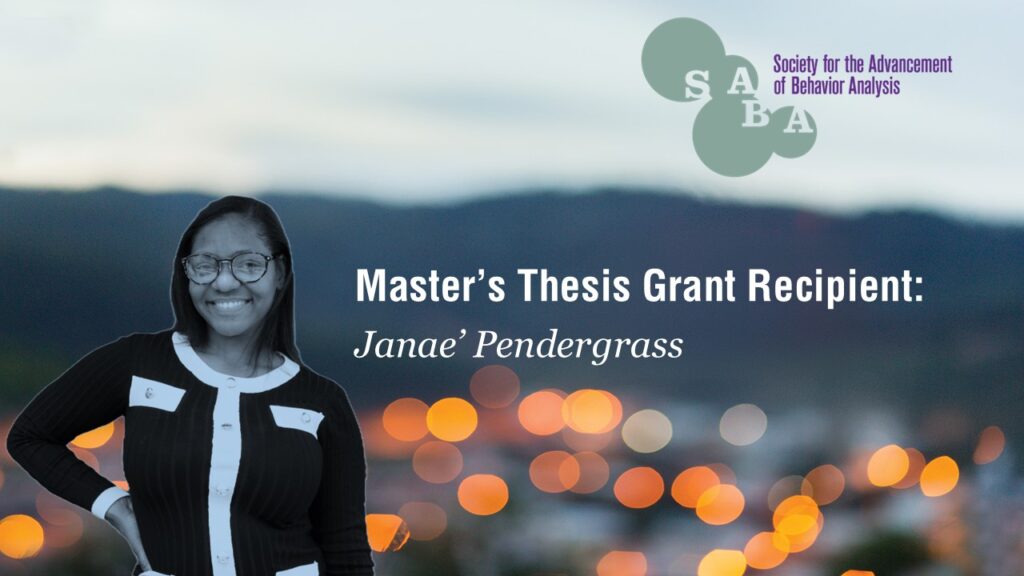Masters Thesis Grants Recipient: Janae’ Pendergrass

Janae’ is a graduate student at the University of Florida studying under the advisement of Dr. Timothy Vollmer. She earned her B.S. in Psychology at Spelman College in 2021 and is presently working toward her M.S. in Behavior Analysis. The SABA Innovative Student Research Grant will support her research on the evaluation of possible interactions between challenging behavior and pain and discomfort states. It is an ethical responsibility of behavior analysts to consider biological variables that may impact their clients and their treatment (BACB Ethics Code for Behavior Analysts, code 2.12). The methods used to identify these biological variables have primarily been subjective (e.g. via parent report). The use of indirect measures can lead to inaccurate accounts of behavior; therefore, reliable methods are needed for identifying pain/discomfort states. Janae’ will use repeated measures of known symptoms of pain or discomfort states (e.g. stool typing as a measure of GI distress) and compare them to the rate of challenging behavior on days when pain or discomfort symptoms are present and days when they are not.
Behavior analytic methods used to assess challenging behavior usually involve direct measurement, such as when conducting an analog functional analysis. There are limitations to this method when individuals are experiencing acute states of pain or discomfort such that (1) repeatedly exposing an individual to (potentially) aversive establishing operations (EOs) while they are in pain is not desirable, and (2) conducting an FA requires repeated reinforcement of challenging behavior. Janae’ plans to use a trial-based functional analysis (TBFA) to minimize the limitations cited above. By reinforcing both challenging behavior and appropriate responding, response allocation relative to particular social contingencies can be evaluated over time. This grant will support the development of a strategy that will provide clinicians with an effective way to test the influence of pain and discomfort states without disrupting ongoing teaching.


